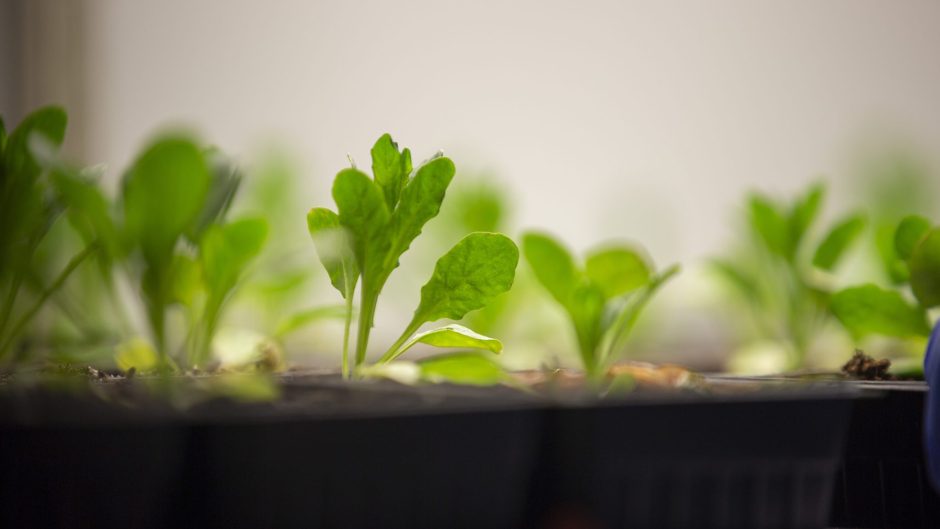
Feb. 22, 2024
As the climate continues to change and the landscape of the agriculture industry shifts in response, a researcher in the College of Food, Agriculture and Natural Resources (CAFNR) is helping support the health of the planet and the farming families that feed the world. Jay Thelen, a professor of biochemistry, recently patented a biotechnological advance that can increase the oil content of common cover crops, allowing them to be harvested and used in making biofuels.
“Oil and protein are two opposing sources of value in oilseed crops, and historically protein is the more valuable of the two,” Thelen said. “That’s changing now. Oil is moving up in value, and in oilseed plants that don’t make much protein or nutritionally balanced protein, the oil is nearly all the value.”
Cover crops — crops planted in suboptimal land and between regular growing seasons of row crops like soybeans or corn — are becoming an important strategy for carbon sequestration, but they have not traditionally been profitable for producers. Currently, most cover crops are tilled into the soil when the time comes to replant the field.
Using Thelen’s technology to increase the oil content yield in crops like Camelina and Pennycress, the seed value is enhanced, harvested and processed into biofuels, creating profit for the farmer in addition to government incentives in place for planting cover crops.
“I come from a farming family,” Thelen said. “My dad was a farmer and my uncle still farms, so I respect their desire to make a profitable and sustainable living from their land. What we are trying to do is make a higher-value cover crop that incentivizes the farmer beyond what the government is already doing.”
Thelen accomplished the increase in oil production by targeted engineering of the enzyme complex that catalyzes the first step in the pathway for fatty acid production. The idea originated when his lab discovered that one of the proteins belonging to this complex is expressed at markedly lower levels than its catalytic partner. The gene for the more abundant protein subunit is ancestrally encoded in the small genome of the plastid organelle, whereas the other gene resides within the nuclear genome, in which there is insufficient coordination of gene expression between the two genomes.
Thelen’s technology aimed to counteract this evolutionary hiccup and synthetically enhance activity of the enzyme complex by upregulating the lower abundance protein. The patent rights have been licensed to the Boston-based agricultural biotechnology company Yield10 Bioscience to be further developed and commercialized.
Read more from the College of Agriculture, Food and Natural Resources


